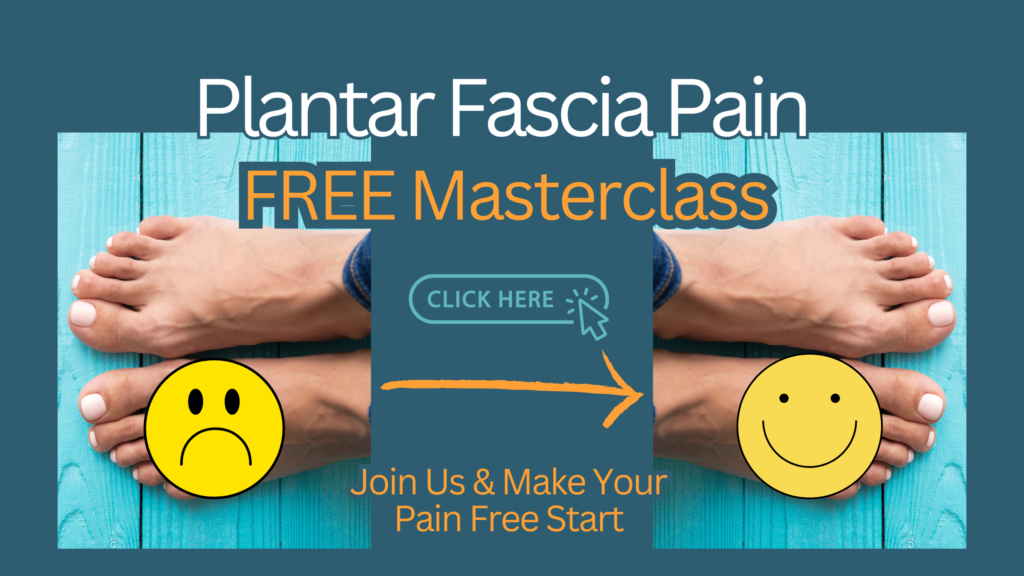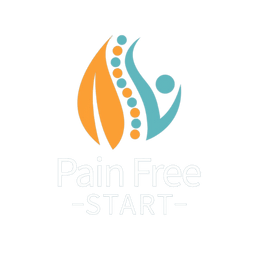Still dealing with heel pain, despite doing all the “right” things?
You’ve tried resting, stretching, maybe even rolling your foot on a frozen water bottle. And yet, the heel pain keeps returning. If that sounds familiar, you’re not alone.
The term plantar fasciitis is widely used — but it isn’t entirely accurate. Most long-term heel pain isn’t caused by active inflammation. Instead, it’s usually due to overload, poor tissue health, and breakdown of the plantar fascia over time. This is why some professionals prefer terms like plantar fasciopathy or plantar fascia pain.
For clarity and because it’s what most people are familiar with (and search for), we’ll use the term plantar fasciitis throughout this blog.
Now let’s explore what might really be going on.
The big myth: “Just rest it and it’ll go away.”
Yes, rest might reduce the pain temporarily. But if you go straight back to the same movements or habits that caused the problem in the first place — without addressing the underlying reasons your plantar fascia is irritated — it’s likely to come back.
And here’s the truth: most people with persistent plantar fascia pain don’t have an inflammation problem… they have a load management problem.
Identify how you are overloading your foot – job, exercises, weakness, footwear, biomechanics, overweight and many more – on my FREE Masterclass. Together we assess your foot and then take steps to resolve this annoying problem. I hope to see you there. Click for more details.

What’s really happening in the tissue?
In most chronic cases, the plantar fascia becomes irritated due to:
- Repeated overloading (long walks, poor footwear, sudden increase in activity)
- Reduced tissue resilience or health
- Poor foot and lower limb biomechanics or calf tightness
- Lack of strength in the calves and other areas.
This leads to a cycle where the tissue can’t recover between uses, and over time it becomes sensitised, sore, and less able to cope — but not necessarily inflamed.
That’s why anti-inflammatories or icing alone won’t fix it. We need to help the tissue heal and strengthen.
Common reasons your plantar fascia pain isn’t settling
1. You’re only treating the symptoms
Icing, stretching, massage — they can feel good, but if they’re not backed by a solid plan to reduce load, improve tissue health and improve foot mechanics, the pain will return.
2. Your shoes or walking habits are part of the problem
Wearing unsupportive footwear (especially barefoot-style, thin-soled, or very worn shoes) can keep the tissue under stress all day.
This blog maybe helpful – Shoes That Might Be Making Your Plantar Fascia Pain Worse
3. You’re doing the wrong exercises, or too much too soon
Many people jump into strengthening or stretching without a graded plan — which can flare the pain.
Most of the people I see in clinic have done their research and started an exercise plan. If only it was that easy – unfortunately it isn’t. most are doing the wrong things and even if they are doing the right exercises they are doing them at the wrong time or too many causing the problem to worsen.
TOP TIP – I have developed the Plantar Fascia Pain Program for just this reason. I share everything you need to recover from this problem in a structured way to prevent flare ups. We also assess your foot and biomechanics addressing any issues that we find. It’s everything I do in clinic – You can start straight away – You don’t even need to leave the house! Learn more here – only £79.
4. You’re not looking beyond the foot
Tight and weak calves, reduced ankle mobility, weak hips and core — all of these can affect how your foot loads with every step. A biomechanical assessment will identify any areas overloading the plantar fascia. I include this in the Plantar Fascia Pain Program.
The path to healing is about more than inflammation
To improve plantar fascia pain, you need to:
- Reduce the load temporarily (not forever!)
- Support the tissue with footwear or insoles
- Strengthen the surrounding structures
- Rebuild the tissue’s capacity with a progressive loading plan
That’s what we focus on in our clinic and in our online Plantar Fascia Pain Program.
Because fixing long-term heel pain isn’t about “stopping inflammation” — it’s about changing the environment the fascia lives in, and giving it a chance to recover properly.
Real Story: “I did everything I was told — but the pain kept coming back.”
Sarah had been dealing with heel pain for 18 months. She tried everything — rolling, icing, stretching, resting — but the pain always returned. When we looked closely, her foot was working far too hard, and her calf strength was poor especially her soleus muscle.
By offloading her foot temporarily, introducing supportive footwear, and gradually improving the way her whole leg worked, Sarah began to feel better in weeks.
“I wish I’d known this sooner,” she said.
“It wasn’t just about stretching my foot — it was about changing how I used my whole body.”
This is such a common scenario in clinic and if not addressed leads to years of recurring problems. We look at this and more in my Plantar Fascia Pain Program.
FREE Masterclass – Perfect first step
If you’ve had enough of short-term fixes, I’m here to help. My FREE Masterclass gets to the bottom of this painful problem by:
- Help you identify why your plantar fascia pain is not improving.
- Assessing your foot to clarify diagnosis.
- Understand what steps to take to resolve this issue and get started in making those.
ENROL today – Click here. I would LOVE to see you there.
In Summary: It’s Not Just About Inflammation
If your plantar fascia pain isn’t improving, it’s time to look beyond inflammation and temporary relief. Long-term heel pain is often a sign of overload, poor tissue health, and deeper biomechanical issues.
True recovery comes from reducing strain, supporting the tissue properly, and building strength in the right areas — not just stretching or icing.
With the right guidance, you can move past pain and get back to doing what you love – and I’m here to support you with that if you need.
Take care, Helen
Helen Manders BSc (Hons) MCSP HCPC
Chartered Physiotherapist
Treating Plantar Fascia Pain Since 2001
P.S. Don’t forget to take your place on my FREE Masterclass. See you there.




